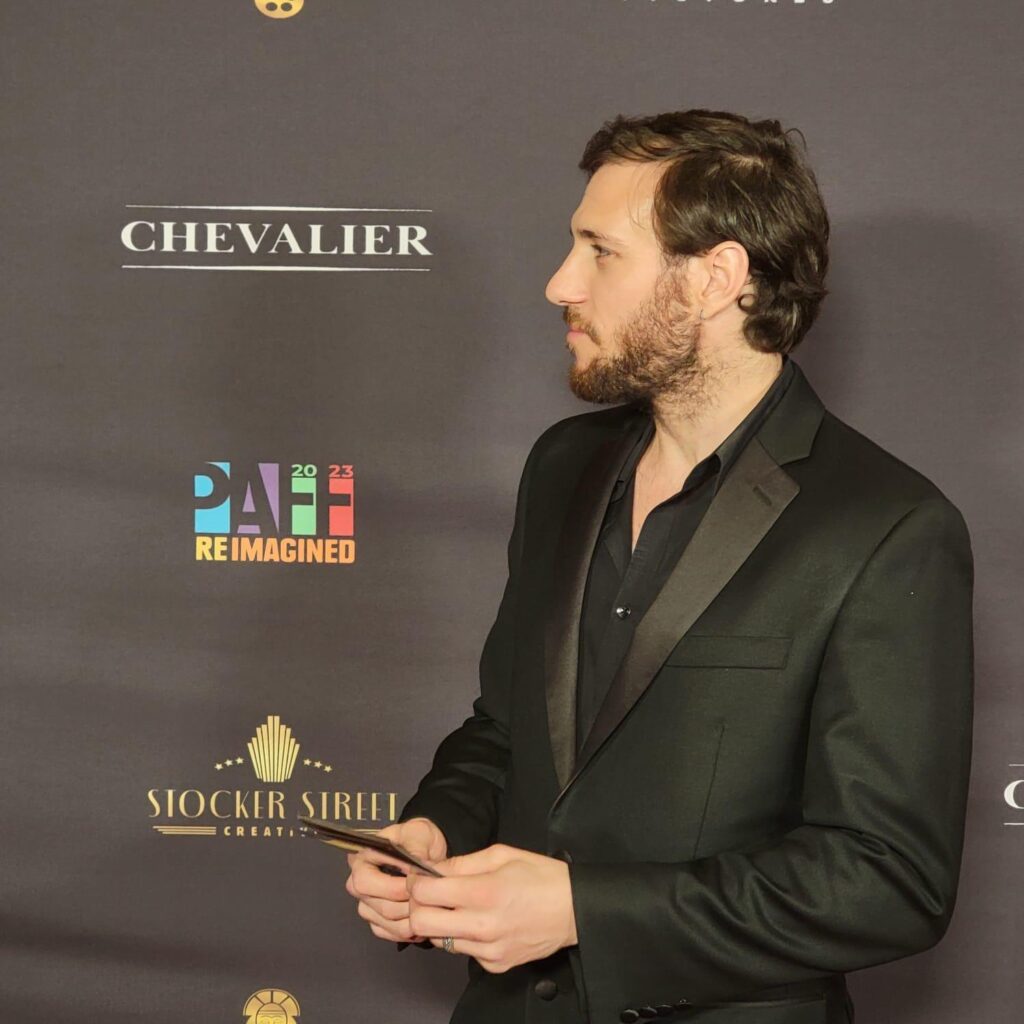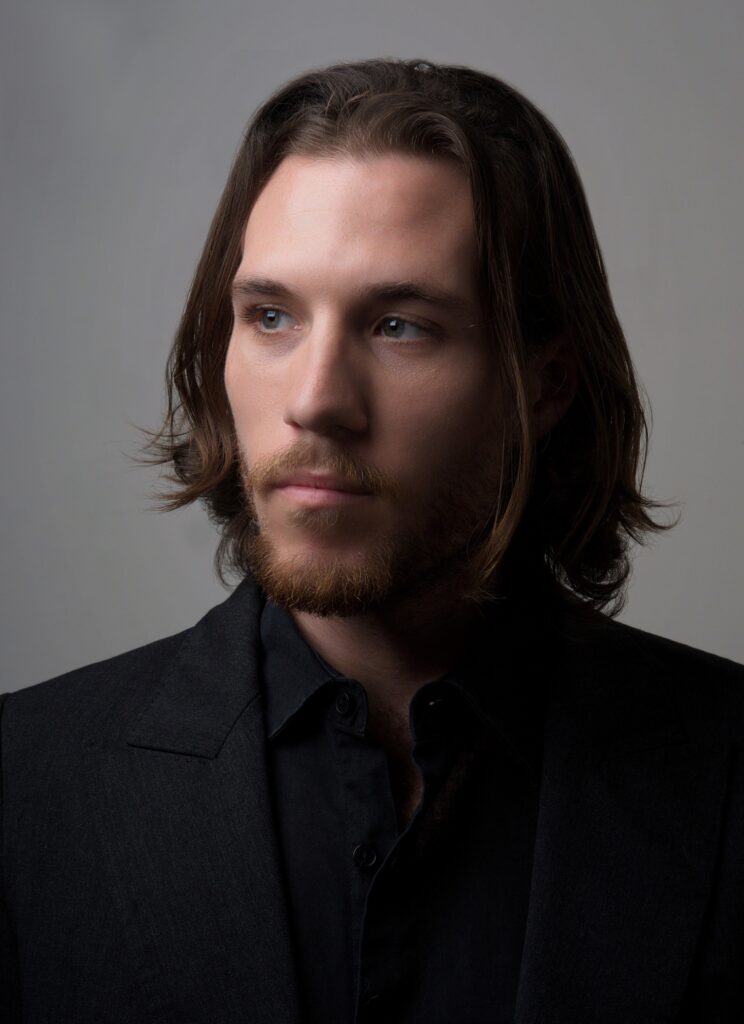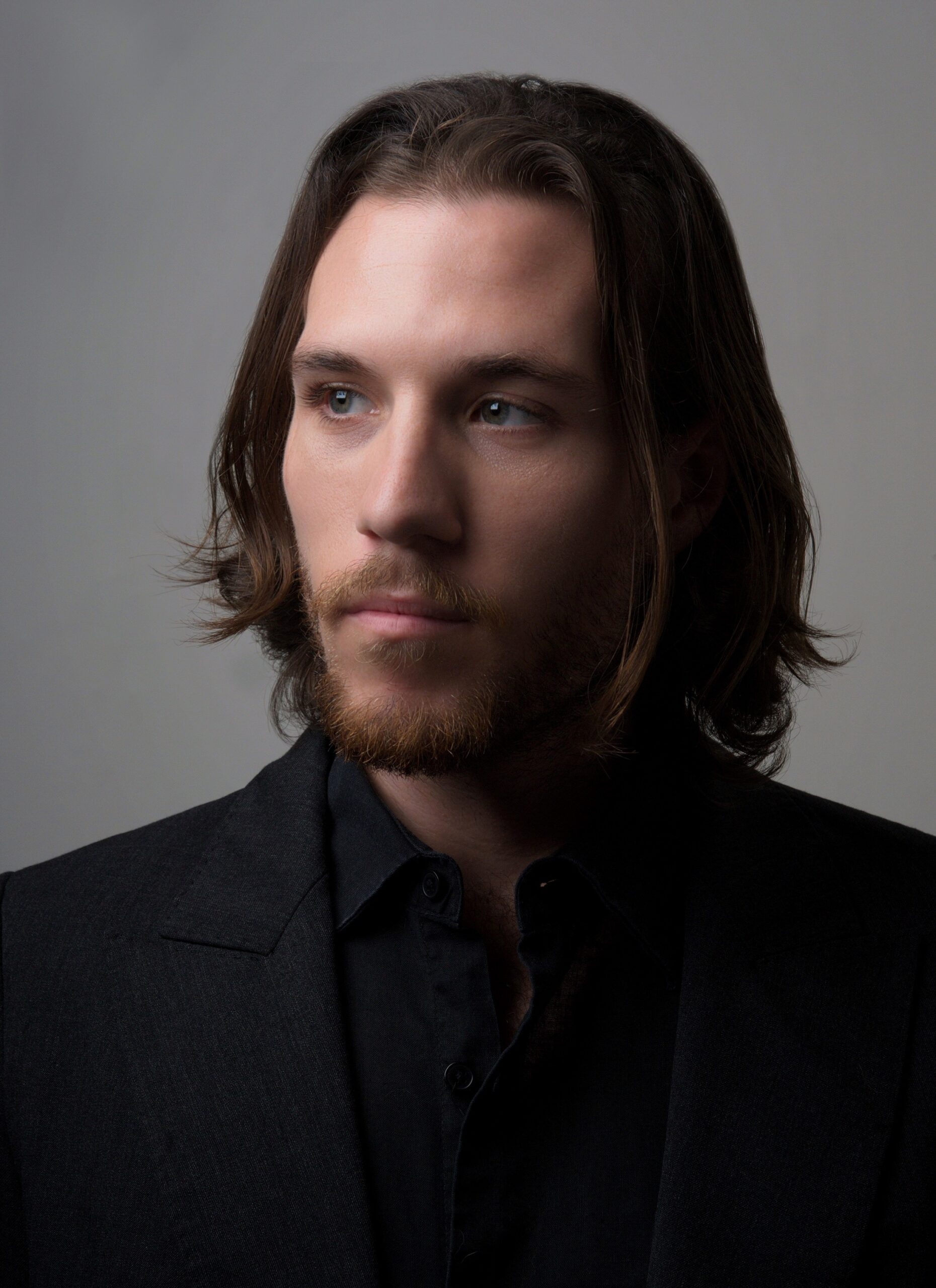Writer-Director Samuel Kay Forrest and his friend and co-writer Staniel Ferreira are now in the spotlight thanks to current attention to their film, Orango, based on some truths of Ferreira’s life. Filmed in Germany, tropical West Africa and Brazil, the fictionalized story is inspired by Ferreira’s real-life return to Africa with his sister to discover the culture of their ancestors. Orango encourages each of us as viewers to learn from our ancestral histories in order to grow and define our identities toward a better future. Its message of personal growth through knowledge of one’s family’s past has been honored by film festivals in the United States, France and Ghana. The following is from a personal interview with writer-director Forrest.
David: Hello Samuel. Congratulations on your new film – Orango – based on the real-life experience of your friend and co-creator, Staniel Ferreira. How did you meet him, and how has your relationship evolved?
Samuel: It’s a pleasure to be with you, David. Several years ago, we met in Los Angeles during the New Year’s holidays at a bar in Echo Park. We started a casual conversation about Berlin. He said he was moving there later in the year and I was living there, already. We connected about traveling and our shared passion for art. The relationship evolved when he moved to Berlin, and we started discussing working together on a film.

The first project we did together was about xenophobia and refugees in Europe. We had such a great experience making this short film together, and our friendship continued to grow. One night, over dinner in Berlin, he mentioned making a film about him returning home for the first time since he fled the civil war in Guinea-Bissau. I was intrigued by the story, and we began writing the script together.
David: Your Orango film content is multi-cultural. It starts in Berlin with the protagonist, Eny, searching for answers and meaning after his mother passed away a year earlier. He yearns to return to his childhood home on the island of Orango off the coast of Guinea-Bissau, West Africa. It’s challenging to produce a single piece of art incorporating two very different cultures and languages. But did you and your associates also find it stimulating to do so?
Samuel: Yes, we found working in both cultures very stimulating. One of the beautiful things about working with people in different parts of the world is how you come together. People who might have never met in any other circumstance start working together as a team. Our team was very international, with many different languages being spoken on set. But English was the language we would all meet with to discuss the plan. This was also an exciting time to write and develop the project because it was during COVID. We used the time together to focus on something positive that could come from this tragic time.
David: While filming in Germany and Orango, did you find those local cultures receptive to and supportive of you and your crew as you were working?
Samuel: Yes, everyone supported the film and believed in the story. We had two teams – the Berlin team and the team from Guinea Bissau. When you make a film, you should collaborate with people worldwide and involve the community as much as possible. It’s essential to keep the authenticity of the world you’re creating. So, most of the characters are playing versions of themselves. We wanted to be as accurate as possible to the truth. To reflect life as it actually is, not to romanticize it.
David: What was your biggest challenge in developing and producing Orango? And how did you overcome it?
Samuel: Many challenges were faced while making the film, but the most challenging was actually in post-production. That’s because we were editing the film in Paris and had to translate three languages while editing it. That’s something I had never done before. But Staniel and I overcame it with our excellent post-production team.
Another challenge in developing the film was to get people to believe in the project. Sadly, people don’t necessarily see the value of making films about Africa as much as they should, but that’s slowly changing. It’s a beautiful place with many rich cultures.

David: What message and impression would you like for viewers of “Orango” to walk away with after the film? What impact would you like to have made upon them?
Samuel: The impression I would like to make is to have people reflect on the cycle we find ourselves in with every generation. To have a conversation about their past and family. How do we heal? How do we break the cycle of trauma and not repeat the same mistakes as history seems so often to do? You can shape your future, not define it by the past but, instead, by what you can learn from it.
David: Your film has been honored with official selections at important festivals, including Pan African, Black Star International, and Pan Afrique de Cannes. How does having this recognition and exposure for your work feel to you personally?
Samuel: It feels incredible because the film has been shown to audiences worldwide, and those festivals have brought us to the US, France, and Ghana. The response was very moving for people connected with the story. All I wanted was for the film to be meaningful to people. So we are very grateful to those festivals that gave us the opportunity. We got to experience the reaction of audiences from very different backgrounds and cultures, connecting with the film similarly. The film has a beautiful way of breaking down stereotypes and stigmas by telling a story about families, which we can all relate to. We all have our messiness with families that we are grappling with.
David: Who has influenced your creativity as a filmmaker in the entertainment industry?
Samuel: Many people have influenced my creativity as a filmmaker. Not only people in the same field but in all aspects of life. I find inspiration everywhere. I have been drawn to people who show us a new perspective of life that hasn’t been revealed before.
To give you a couple of examples of the spectrum of my influences, I would say Jimi Hendrix, Paul Newman, Maya Angelou, Jack Kerouac, Bob Dylan, Elia Kazan, Salvador Dali, Shakespeare, Neil deGrasse Tyson, James Baldwin, to name a few.
David: What do you think the entertainment industry lacks?
Samuel: First, the industry is moving in the right direction. The progress of inclusivity has been inspiring. It’s reshaping the world and how people understand each other. The stories we tell ourselves and how people are seen can change people … and people change the world.
One thing I would like to see, though, is this idea that if you don’t have a lot of money for a project or if it is a low budget, it’s something that audiences won’t want to see. That is a myth because people will always be interested if the story is powerful enough.
David: What have you learned about yourself as a filmmaker?
Samuel: I have learned that I am my best self when working on a project. I am very comfortable working with anybody. I’m open-minded, and love learning new things. I enjoy being challenged and doing things people say you can’t do because there is no precedent.
David: What advice are you giving people struggling to make it in entertainment?
Samuel: I advise people struggling or waiting for something to happen to create, tell their story, and be prepared for the opportunity. This way, you’ll be ready for whatever obstacles come your way. Sometimes, people focus more on the result than what they can learn from the journey and the experience.
David: Thank you for your time. Do you have any words of wisdom for all the readers?
Samuel: There is no right or wrong way to create something if it comes from an honest and authentic place. There are many ways and approaches to express something. Discover what works for you and follow your bliss.
LINK TO TRAILER: https://youtu.be/aPFI7BRmctw

